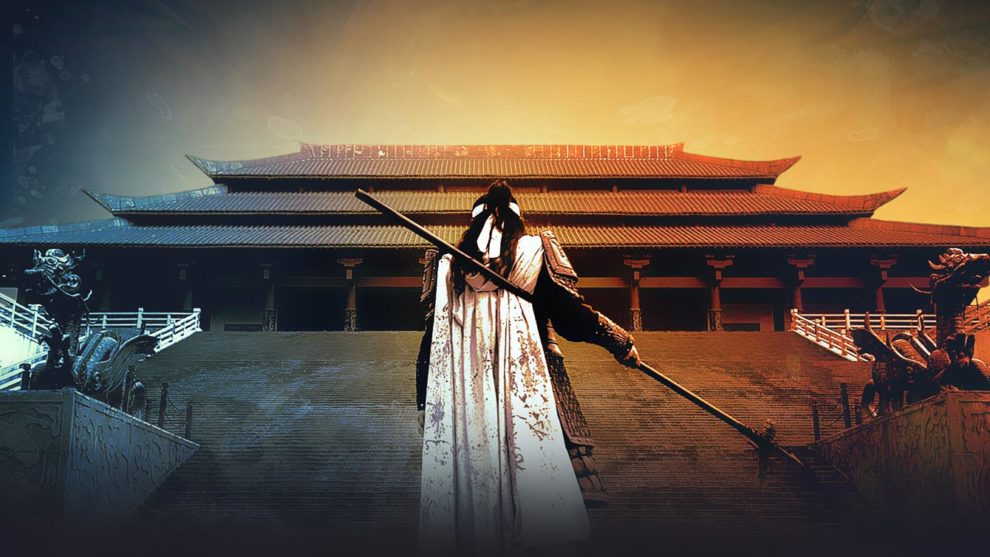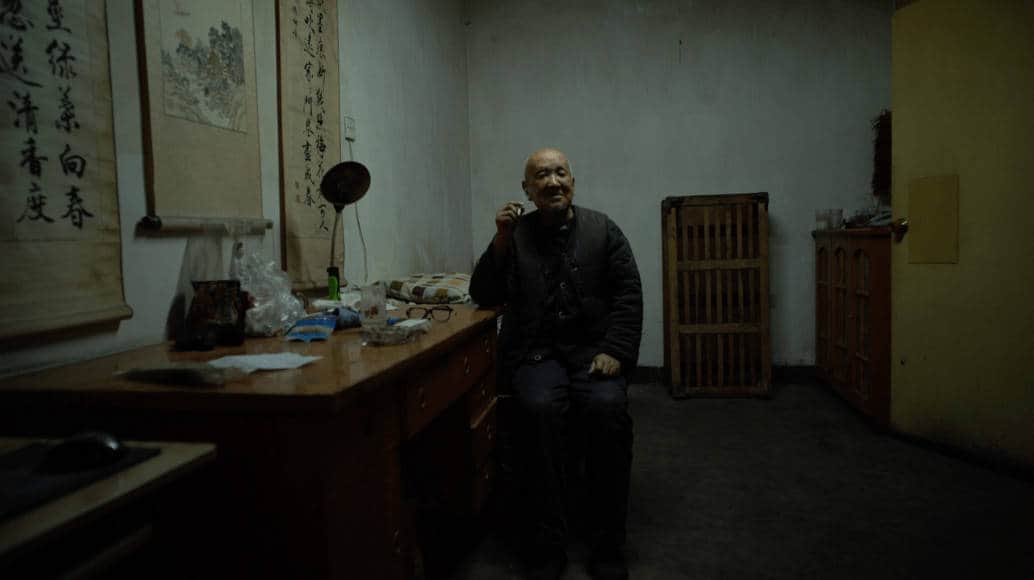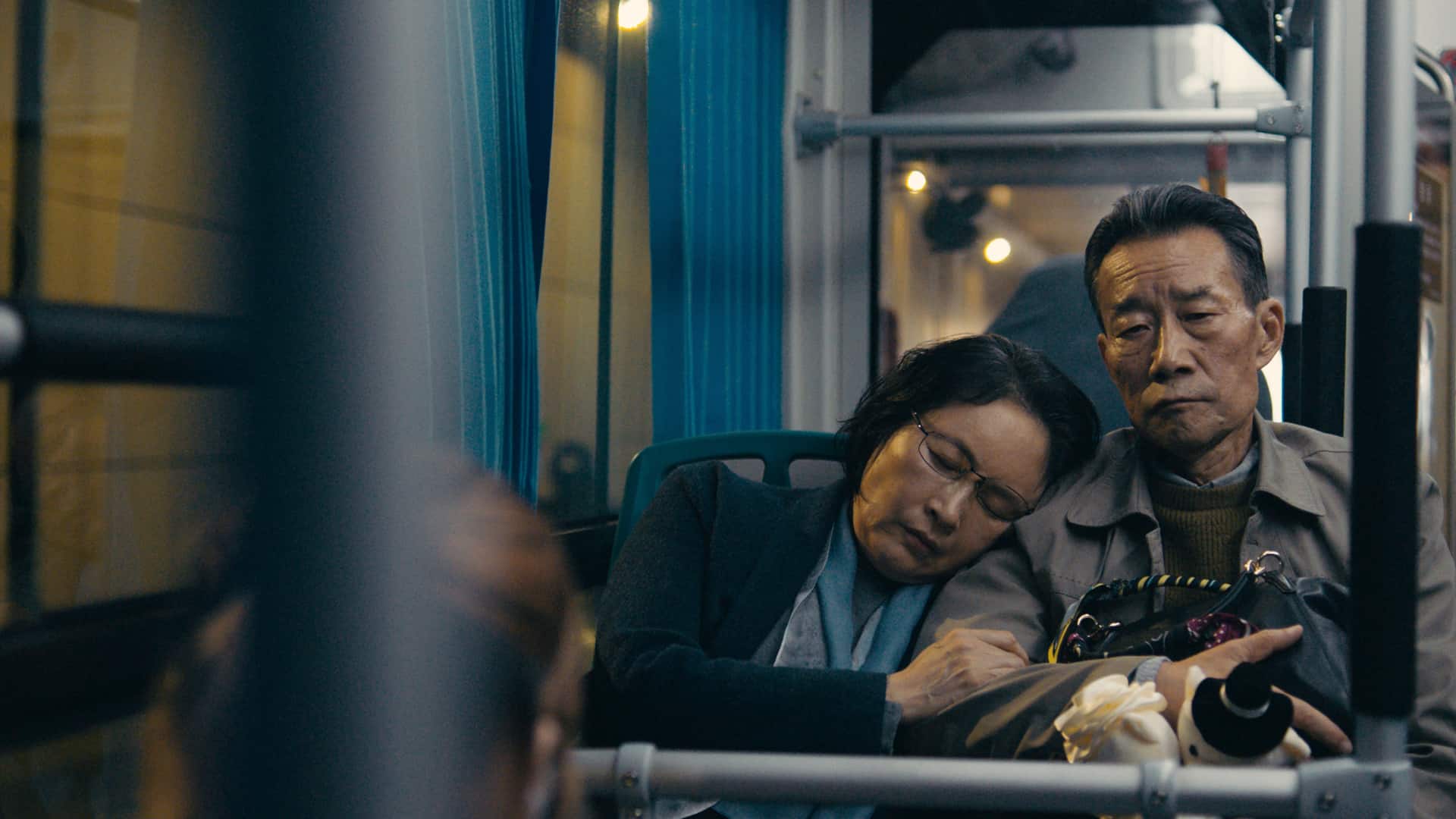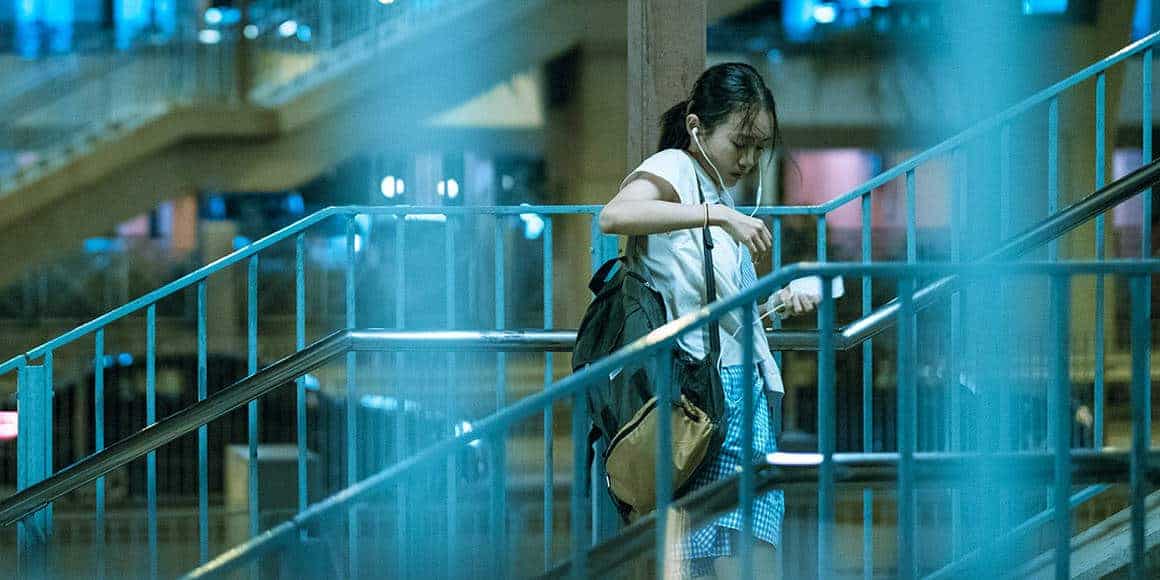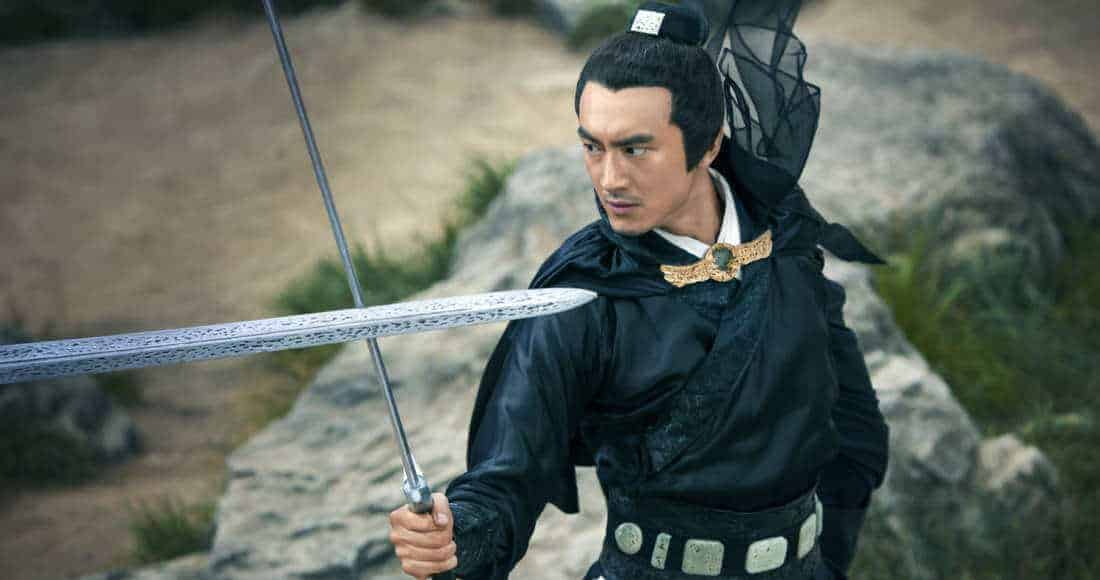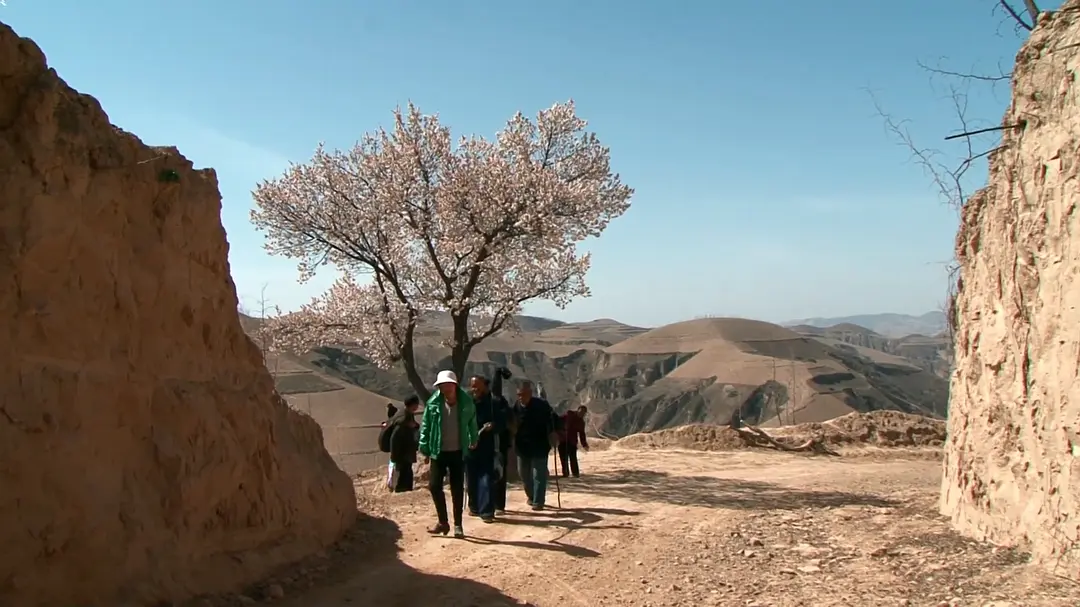Watching “The Emperor's Sword” is to have the Wuxia genre distilled into a 90 minutes ‘greatest hits' package. From the outset we have the traditional use of the sword as a central plot device. It's a symbolic figure of the representation of power that we see frequently occur in classic narratives. Where it gets interesting is how this arc gradually fades almost into the background as the other stories take centre stage until it suddenly remembers to bring it back again for the finale.
Buy This Title
on Amazon
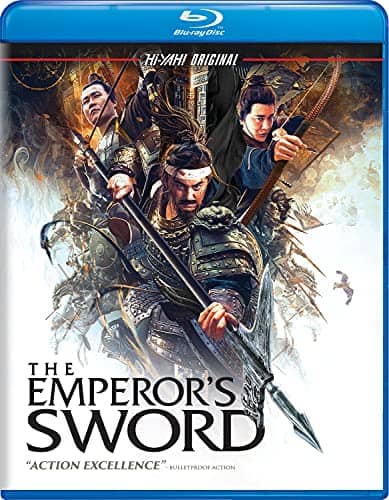
Meng Xue (Hau Yi Lin) sees her family attacked by the forces of Lord Zhao and is tasked with taking one half of the Ding Qin sword to be united with the other. Barely escaping, she is saved by Jillian (Mou Feng Bin) one of the seven gentlemen, warriors who had served the late emperor. They are pursued by Commander Tian (Yang Qi Yu), a former ally of Jillian who now serves Lord Zhao. After Meng Xue is injured, Jillian leaves her in the care of Liang Zi (Pan Ruoyau) and (Qi Hang Zhao). Their inn is investigated by Zhao's troops and they are forced to flee. Their escape leads them to a village in the valley where the rest of the seven gentlemen have retired from the martial world. As the chaos they left behind them threatens to consume them once more, they must rediscover their honour and aid Meng Xue to restore the order they once had.
As Meng Xue's journey progresses, it opens up other elements of classical Wuxia fiction as if creating new chapters in a free roaming story that wants to diverge at every opportunity. The Inn sequences immediately bring to mind the work of King Hu, with heroes and villains playing a game of chess with their lives as the tension mounts. It's an abridged run through “Dragon Inn”, with one moment of unintentional humour involving pigeons that caught me off guard as the tone of the piece is very serious. The hidden doors, fake sincerity, outlaw occupants and sword wielding hostess are all familiar to any fan of Wuxia. The remnants of the seven gentleman who we meet in Red Hill Valley lead us to another archetypal device of the genre, the desire to retire from the martial world. These are reluctant heroes, their days of war done, they wish to escape from the chaos outside, but inevitably conflict is brought to them through Meng Xue.
The part I liked the most during this section is the diversion to a discussion between Commander Tian and Jillian. Former friends turned foes, yet both believing their cause is just. This tragic friendship is allowed a moment to breath as they stop to drink and discuss the past, knowing that the next day they will be enemies again. It just adds that little bit of extra depth that pays of in several of the scenes that follow. These stories are frequently romantic tragedies which we get to a degree, but having this one scene allows for an extra emotional beat in the conflict. At one point, Jillian is referred to as a Ronin. A throwaway line but one that really cuts to the heart of the characters. The Emperor is dead and so they have no master to serve.
Visually it is well shot, with a muted colour scheme. If I have any issue with the directorial choices it's the frequency of the slow motion. Whilst the clarity of the action is never an issue, the use of slow motion enhancement does feel excessive, especially at the beginning. When you get some excellent action sequences such as the archery duel in the long grass, it's a pity that the editing distracts a little. The other choice is to keep the action relatively grounded. Most Wuxia sees wirework as almost a default option so it's a nice change of pace in keeping with some of the better recent examples of the genre such as “Brotherhood of Blades”.
Hau Yi Lin captures the contradictions of Meng Xue well. She is both naïve and wise beyond her years. As a character that drifts in and out of the story, it's difficult to keep engaged with her quest but to her credit, she is for the most part, able to do so. Alongside her is Qi Hang Zhao who counterbalances her nicely as a more brash yet reluctant hero. Of the supporting cast it is Yang Qi Yu as Commander Tian who gets the meatier part. What is initially a one note villain is given more depth as the story progresses and a couple of character beats that make him a more interesting one. Mou Feng Bin gets the most traditional part as the heroic Jillian. He's the quintessential wuxia hero. In love with someone whose heart belongs to another, loyal to an ideal that is in the past and who knows his place in the world is to forever drift without settling down. He gets most of the physical action and handles it well.
If this feature has a weakness it is in the narrative. The short running time does not feel enough to give the story the richness it deserves and feels a little episodic as we switch from one sequence to another. The central quest becomes diluted as the focus moves to the seven gentlemen and back again. Until the climax, we never get a real sense of plight in Weng Xue's journey and a bit more focus on the script would have lifted it from very good to one of the classics. It's not often these days that we want films to be longer, but this could have really benefited from an extra 30 minutes to tighten things up.
So whilst it has some flaws, overall this is one of the better examples of Wuxia to emerge in some time, mostly beacuse it is less focused on political machinations than about the ideals that drive us. Clear action, good performances and interesting characters round up the pros here. I only wish it was a bit longer and had more attention to the story to make it a classic. Definitely enjoyable and fans of the genre will lap it up.


